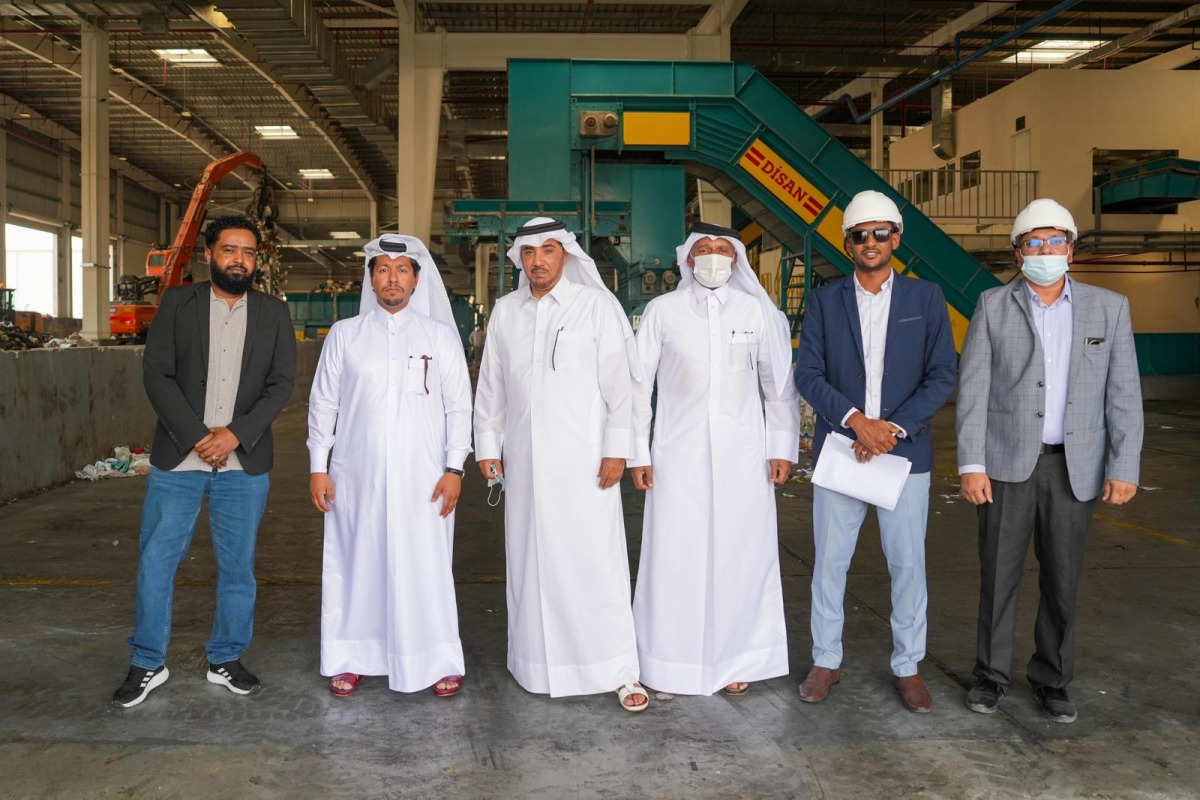The Ministry of Environment and Climate Change (MoECC) in Qatar is focusing on enhancing cooperation with the private sector in the circular economy. A recent visit to the waste transfer station in Al Khor, led by Dr. Soud Khalifa Al-Thani, Director of the Green Development and Environmental Sustainability Department, highlighted the important role of the private sector in achieving the goals of the National Environmental Strategic Plan. The station, operated by Global Co., plays a crucial role in Qatar’s waste management infrastructure, with a daily capacity of up to 1,500 tons of waste. This station contributes to sorting, reducing, and efficiently transporting waste to recycling plants, promoting collaboration between the public and private sectors. It is a significant step towards achieving the national environmental strategy and the circular economy, with the aim of attracting foreign investments, implementing clean technologies, and reducing emissions.
The Al Khor Station is also contributing to decarbonizing the waste management sector, which is responsible for approximately 3-5% of global emissions. By attracting investments and financing, creating job opportunities, and enhancing regulatory frameworks, the station is positively impacting various sectors such as manufacturing, food security, infrastructure, and transportation. A study by the Investment Promotion Agency in Qatar projects that the circular economy could generate an additional $17 billion by 2030 and create around 19,000 new jobs. The station’s focus on converting waste to energy, developing renewable energy sources, and implementing smart waste management solutions aligns with the United Nations Sustainable Development Goals, and aims to protect the environment in the long term.
The Al Khor waste transfer station is not just a waste management facility, but a key driver of economic growth and sustainability in Qatar. By promoting the circular economy, the station is creating opportunities for innovation, investment, and job creation. With a focus on attracting foreign investments and implementing clean technologies, the station is leading the way towards a more sustainable future. The station’s efforts to increase recycling rates, close and rehabilitate unhealthy landfills, and reduce emissions are all in line with Qatar’s commitment to environmental protection and sustainable development. By working closely with the private sector, the MoECC is driving progress towards a more sustainable and environmentally-friendly waste management system in the country.
The circular economy is not just a concept, but a strategic approach to economic development that aims to maximize resource efficiency, minimize waste, and promote innovation. By converting waste to energy, developing renewable energy sources, and enhancing smart waste management solutions, the Al Khor waste transfer station is playing a crucial role in advancing the circular economy in Qatar. These efforts are not only beneficial for the environment but also for the economy, as they create new opportunities for businesses, job creation, and economic growth. With the potential to generate billions of dollars in additional revenue and create thousands of new jobs, the circular economy is poised to drive sustainable development and economic prosperity in Qatar.
In conclusion, the Ministry of Environment and Climate Change in Qatar is making significant strides in enhancing cooperation with the private sector to advance the circular economy. The Al Khor waste transfer station is a prime example of how collaboration between the public and private sectors can drive innovation, investment, and job creation in the waste management sector. By focusing on converting waste to energy, developing renewable energy sources, and implementing smart waste management solutions, the station is not only promoting environmental sustainability but also economic growth. With the potential to generate billions of dollars in revenue and create thousands of new jobs, the circular economy offers a promising future for Qatar’s sustainable development goals.









